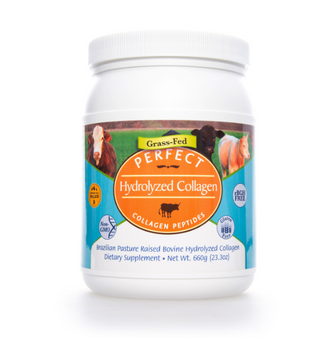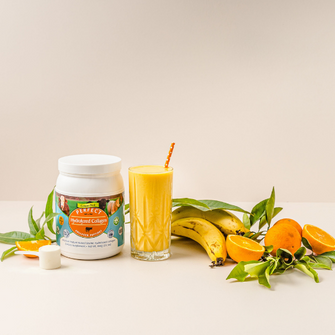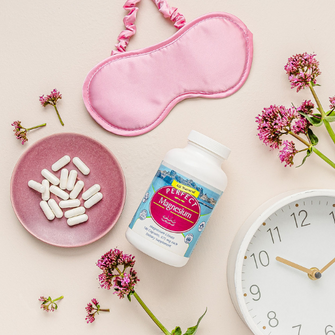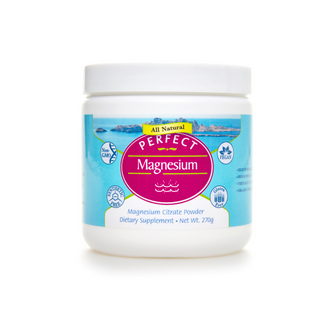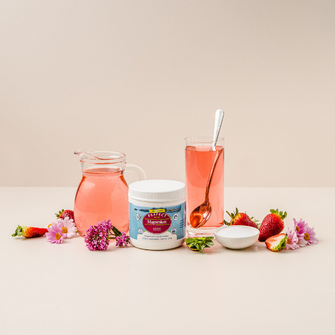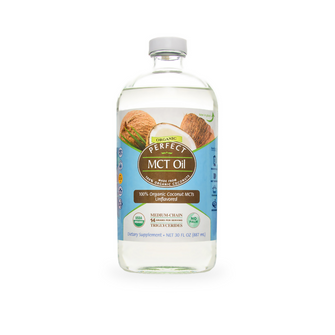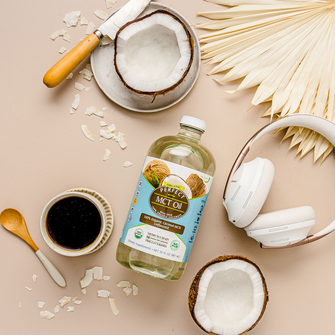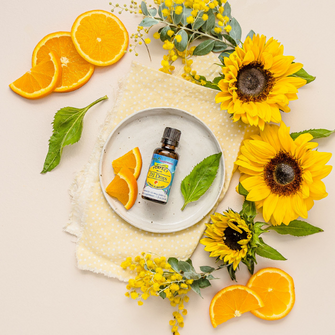Categories
Related Products
Ok, so that's a big claim and maybe it's true and maybe it's not but what I do know for sure is that if you are having trouble sleeping you will gain much value out of the information in this blog so let's get started...
We all know that sleep is absolutely vital to how we feel each day, our level of health, energy and happiness.
Good sleep is needed for many bodily functions like hormonal balance, healthy weight, mental focus, healthy blood sugar, immune function and much much more!

When we sleep well, we feel our best selves and could take on the world and any task or challenge that comes our way but when we don't get proper sleep, we don't function as well and tend to "drop the ball" and not deal with challenges or people very well.
Some people claim they can function well on just 6 hours but I am skeptical of this. It has been shown time and time again that adults need at least 7-9 hours of good quality sleep - including REM (rapid eye movement) sleep.
Older adults may need slightly less at 7-8 hours but it is much the same.
Sleep deprivation is a huge issue (hence writing this blog) and doesn't just affect new mums, it is widespread and worldwide.
In today's article, we are going to cover the top sleep tips and talk about issues that can affect sleep and what to do about it so be sure to take the time to read this in it's entirety because you're obviously here for a reason - to get to the bottom of your sleep issues.
I wish you the best of sleep 😴
TOP TIPS FOR BETTER SLEEP

Tip #1: Eat a low-carb diet and well before bed
It's been proven that eating a low-carb diet (protein-rich) helps with sleep. Also, be sure to eat dinner at least 2 hours before you hit the pillow (go to bed) so that your body isn't trying to do 2 things: digest the meal and create the sleep hormone - melatonin. I share lots of great low-carb recipes on our Instagram, follow us here if you're not already!
Tip #2: Avoid Sugar and Alcohol on Weeknights
Try to avoid eating sweet things or food/drink with sugar in them at night and this includes alcohol. These things can have a detrimental affect on your sleep and you can often wake up feeling groggy and lethargic which can become a negative spiral and cause you to reach for unhealthy choices the next day. It's a vicious cycle! Save your sweet treat or glass of your favourite alcohol for the weekend - preferably a Friday or Saturday night and not a Sunday as this can negatively set up your week.
Tip #3: Avoid Pre-Bedtime Tummy Rumbles
To ensure satiety (fullness and satisfaction after a meal) be sure to have some protein with your dinner and a scoop of Perfect Hydrolyzed Collagen in milk, water or herbal tea before bed.
Go one step further and add in 1 tsp of Perfect Organic MCT oil and 1 tsp of raw honey (trust me on the honey). This concoction in room temperature filtered water is one of the best sleep tonics around and it's so simple and quick!
Try to avoid having it in juice, hot cacao/chocolate, coffee, black/green tea (caffeine) or other sugary drinks. You could try it in some full-fat yoghurt or coconut yoghurt and add some cinnamon (great for blood sugar balance and tastes delicious!)
Why raw honey? 🍯
It has to be raw or it just doesn't work the same! Raw honey contains enzymes and processed/pasteurised does not. You brain is very busy while you're sleeping and it needs glycogen so by adding the raw honey to this concoction, you will essentially fuel your brain with important glycogen for its many unconscious tasks.
Why the Collagen?
Collagen contains the amino acid glycine and glycine helps to induce sleep! Glycine has been shown to help lower your body temperature and this can really help you to get a deep and well-rested sleep. 🌙
Why MCT Oil?
MCT oil (especially when it's as clean as the Perfect brand), is a great source of KETO energy/keto fuel. This fuel can help you to avoid an insulin spike during sleep hours. Insulin is known to hinder sleep. Adding 1 tsp or tbsp of Perfect MCT oil to your nightly routine, can help induce a better night's sleep. 🛌
Tip #4: Exercise at the Right Time
Exercise preferably in the morning or through the day when your natural cortisol levels are higher. Exercise in the evening can be more difficult as natural cortisol levels are dropping to prepare your body for sleep soon and exercise late in the day or evening can be quite stimulating as well.
This may not suit all people, as some people's schedules don't allow for morning exercise so if that is you, I'm not saying stop exercising (I can't give health advice anyways) and it is better to exercise at night if that is the only time you can, than to not exercise at all. Exercise has been proven to help with sleep, just be mindful if you do exercise in the later hours of the day and have trouble sleeping, this may be the reason.

Tip #5: Feel The Sun on Your Skin
Getting daily sunshine in the safe hours (early morning and late afternoon) can help regulate your circadian rhythm. If you opt to wear sunscreen at during these safe sun times, just know that this has the potential to block out the production of beneficial vitamin D. I personally find, that the morning and afternoon sun is safe and gentle.
There is almost nothing better for your health and wellbeing than to get the direct (safe) sun ion your skin and if you get up early enough and see the sun come up, it can be very beneficial to get the natural light in your eyes as this has many incredible health effects but if it gets to bright (high in the sky) it's not a good idea to look into it and this may actually cause damage. Just on sunrise is the key.
If you can't get into the safe sun because your schedule doesn't allow it, it could be worth considering taking a high-quality vitamin D3 supplement?
Vitamin D is important for melatonin production (your sleep hormone) and it's also melatonin that helps to regulate your circadian rhythm.... now that's one vital vitamin right there!! (vitamin D)

Tip #6: Reduce Your Exposure to Blue Light
Reduce your exposure to blue light from TV-watching, computer/tablet/smart device, phone etc. I know this can seem or feel extremely difficult as we have all become quite dependent and even addicted to these devices and forms of winding down but it is just a habit and habits can be changed, one day at a time!
It is easier to wean yourself away from these unhealthy nighttime activities when you have a list of other healthier nighttime alternatives...
- Read a book: Reading is such an undervalued activity that can help you unwind but it has also many benefits, such as learning, self-development/self-improvement, and enjoyment.
- Have a bath: If you are fortunate enough to own a bath tub, take advantage of such a privilege (not everyone has this luxury) and setting the mood in your bathroom can go a long way to getting you relaxed and ready for sleep. Light some candles, add some calming essential oils (see below) and a cup of epsom salts or magnesium flakes to your bath. Play some relaxing music or listen to a podcast or audiobook.
- Play around with essential oil combinations (calming ones for rest may include Roman chamomile, lavender, juniper berry, Ylang Ylang, geranium, jasmine, neroli, vetiver and more).
- Do crossword puzzles or sudoku old school style (in a book or magazine) so you're not looking at blue light. These types of activities are great for your brain health and mind.
- Make love to your partner (or please yourself!) Sex and orgasm can be a wonderful way to connect with your partner or yourself. Sex/orgasm before bed can help induce a good night's sleep, this is because sex uses up energy and also, during sex, oxytocin is released by the brain (this enhances arousal and feelings of excitement) but after this hormone/neurotransmitter wears off you may feel sleepy (that is the goal). There are many other reasons that sex can cause tiredness but we will save that for another blog.

I don't think there's much love-making going on here... 🤔
Tip #7: Avoid Caffeine after 3-4 pm
Caffeine is a nervous system stimulant and this can certainly affect your sleep. Bets to enjoy caffeinated beverages in the morning and around lunch time. This includes, coffee, black/green/white/oolong tea, energy drinks, hot chocolate, chocolate, cacao, matcha and cola.
Tip #8: Try to Avoid Daytime Naps
If you are adrenally or chronic fatigued this can be challenging and sometimes not possible so you'd be better to speak to your trusted health practitioner if you're struggling with sleep. For anyone else, it's important to know that taking a daytime nap (unless it's just a short 15 minute nap or mediation) can confuse your internal body clock thus making it difficult to fall asleep or experience deep sleep.
Tip #9: Get into a Sleep Time Rhythm
By going to bed and waking up at the same time each day this helps your body to get into a natural rhythm (your circadian rhythm loves regularity and consistency)! Think of a time or times in your life when you've gone to bed late, then woken up tired and then tried to get to bed early the next night with great difficulty.
Tip #10: Take a high Quality Magnesium Supplement
If you struggle to implement any of the other suggestions here, I invite you to consider taking a high-quality magnesium supplement before bed. Magnesium helps to relax the muscles and may also enhance sleep quality.
Tip #11: Create a sleep "sanctuary"
Your bedroom should be a sanctuary for sleeping, love-making, pleasure, cuddles and reading and not so much a place for TV, computers and devices that emit EMF that can disturb health and wellbeing. Taking a TV out of our bedroom many years ago was one of the best things we ever did! It helps us to connect to each other and we both prefer the vibe in the room with no TV.
You Can create your own sleep sanctuary by following these suggestions:
- Ensure your room is dark with no light filtering in form the outside world and if you're unable to then I suggest you invest in a silk eye mask that will keep everything dark so your body knows it's time for snoozing.
- Turn off all electronics and anything that has an LED light as this can be disturbing for sleep. Keep your phone on aeroplane mode if you need to have it next to you
- Try to keep your room to a cool temperature of 20-21c as this helps to induce a deeper, more restful sleep. There's nothing worse than feeling too hot when you're in bed! (unless it's from fun in the sheets) 😉
- Use the appropriate bed linens for the season and temperature you are in, this can have a huge impact on your level of comfort and therefore sleep! I opt for soft bamboo sheets in the warmer months and more cosy fabrics like flannelette in the cooler months. Try to avoid (if possible) scratchy fibres that irritate the skin or feel hot against it
- Invest in a great mattress and a great pillow and mattress/pillow protectors to protect your investment and get more years out if them. Keep in mind that you spend up to a third of your life in bed so you want to be sleeping on a mattress and pillow that is is comfortable and supports your spine, neck and the rest of your body.
- Light some candles or use the fake battery-operated candles to create a soft, relaxing atmosphere and if you have an oil diffuser, add a few drops of your favourite calming oils or blends. You might like Roman chamomile, lavender, juniper berry, Ylang Ylang, geranium, jasmine, neroli, vetiver etc.

Tip #12: Clear the Clutter
Clearing the clutter from both your mind and physical surroundings brings a sense of peace and harmony. Strive to keep your home as clutter-free as you can (if you have kids this can be challenging so just do your best). To keep your mind free from cluttering thoughts and worry, be sure to take a few minutes each night before sleep to get these thoughts out onto paper (use a notepad or journal things down). Writing can be very therapeutic and healing. You can work through emotions that occurred through the day and help to process and release them. Writing things down before you sleep can free your mind and allow you to drift away much more easily than if you kept all that mind-clutter inside your head!
Tip #13: Mediation or Mindful Breathing
Both of these practices are incredible for helping to calm down the sympathetic nervous system (the part of your NS that gets activated in stress/fight or flight). Mediation and mindful/diaphragmatic breathing activate your parasympathetic nervous system (the part of your NS that controls the internal organs when in state of rest). Creating calm can help this important function and it has many other health benefits.
There are plenty of good meditation apps and downloads you can purchase online. Something I like to do is download Youtube meditations onto my phone so I can listen even when my phone is on aeroplane mode! This is possible when you have a Youtube Red account.
Some other great meditations can be found at drjodispenza.com and also empoweredsleepformula.com (Jason Stephenson) - this one is FREE!
There is also the Calm app.
Meditation has been a big part of my life for almost 20 years and it has helped me in so many ways, everything from improving my gut health, sleep, anxiety, depression and more.

Tip #14: If All Else Fails
If you've done everything that we've suggested in this article and you're still having trouble sleeping you might wish to consider seeking advice from your trusted health practitioner? Speak with them and get to the bottom of what is going on for you and your health.
Issues that Can Affect Health
- Sleep apnea
- Chronic stress, PTSD, worry, anxiety disorder, panic attacks, bipolar, OCD, depression, schizophrenia
- Dementia & Alzheimer's disease
- Chronic pain and fibromyalgia
- Itchy skin from dermatitis, eczema or psoriasis
- Muscle twitches or spasms
- Back issues
- Menopause and perimenopuase (see our blog here)
- Parkinson's disease
- Medications
- Primary insomnia
- Diabetes
- Obesity
- Neurological disorders
- Thyroid disease
- Heartburn
- Respiratory problems
- Substance misuse
- Bruxism (teeth grinding)
To Conclude
While these sleep suggestions are fantastic, they are not intended to replace proper medical care if you require it? If you are healthy and well but just struggling to get to sleep you will no doubt greatly benefit from the many tips in this blog.
If you need a health check, you can always come back to this information at a later date.
Disclaimer: the information in this article is intended purely as information and not health advice. It is not intended to treat, diagnose, prevent or cure and one should always seek expert advice from their trusted health practitioner.
References:
https://www.sleepfoundation.org/
https://www.bulletproof.com/sleep/sleep-hacks/the-top-6-ways-to-improve-your-sleep-using-food/
https://www.avogel.co.uk/health/sleep/6-hormones-that-can-affect-your-sleep/
https://www.self.com/story/eating-before-bed-sleep-digestion-weight
https://www.healthline.com/nutrition/17-tips-to-sleep-better#_noHeaderPrefixedContent
https://www.medicalnewstoday.com/articles/307334
https://www.healthline.com/nutrition/how-much-sleep-you-need
https://www.insider.com/why-sex-makes-you-sleepy-2018-3
https://pubmed.ncbi.nlm.nih.gov/32156230/#:~:text=Results%3A%20Vitamin%20D%20receptors%20and,human%20circadian%20rhythms%20and%20sleep.
https://www.sciencedaily.com/terms/sympathetic_nervous_system.htm
http://sitn.hms.harvard.edu/flash/2009/issue61/#:~:text=The%20physiologic%20benefits%20of%20transcendental,epinephrine%2C%20norepinephrine%2C%20and%20cortisol.


